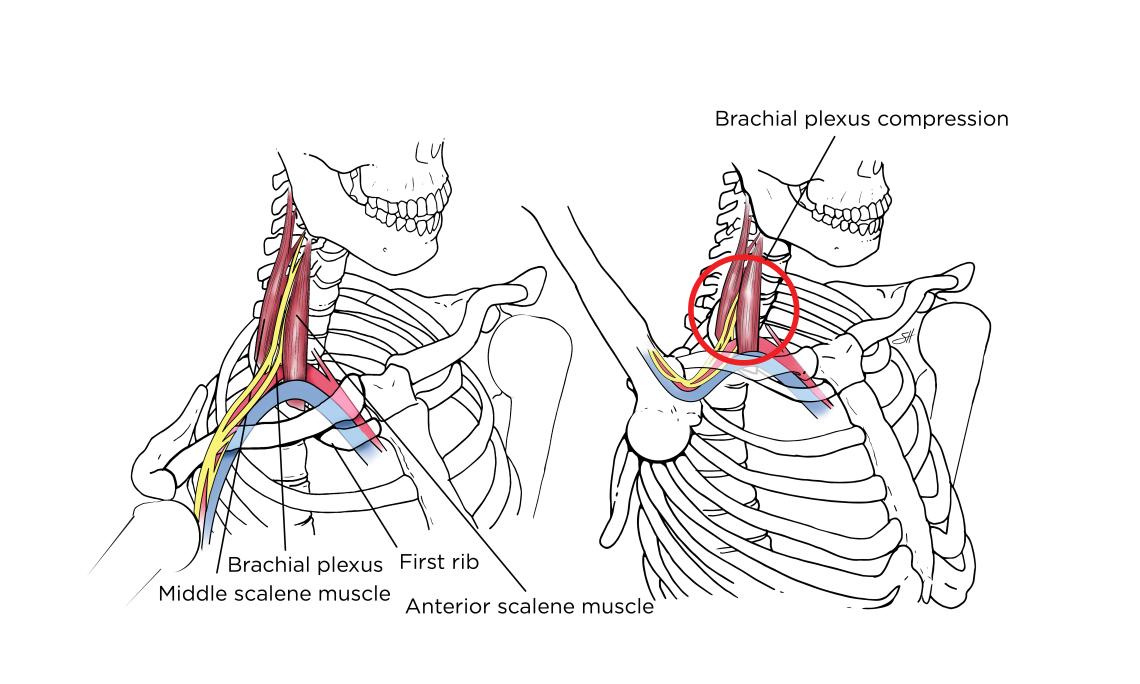
Your particular treatment will depend on the type of TOS you have, as determined by your symptoms, physical examination and test results.
Neurogenic TOS. Neurogenic TOS is typically treated with physical therapy and most patients can avoid surgery The basic therapy methods include stretching exercises of your neck, posture correction, learning to avoid specific movements that bring on or aggravate your symptoms, and modifying your work site when appropriate. While some therapists may suggest strengthening exercises, most patients with neurogenic TOS are made worse by strengthening exercises. Treatment with a therapist for a few weeks is usually followed by a home exercise program which you continue on your own for at least several more weeks.
Venous TOS. The clot in the vein is initially treated with clot dissolving medication, with blood thinners (anticoagulants), or sometimes twith a procedure to open the vein and remove the clot. Once the clot has been removed, our surgeons may recommend that the first rib be removed so that the narrow space through which the vein passed can be enlarged to prevent the vein from clotting again. If the vein is badly narrowed, the narrow spot can be widened by having a balloon stretch out the vein in a procedure called an angioplasty.
Arterial TOS. If the subclavian artery in your thoracic outlet has become damaged by pressure, our vascular surgeons must repair the artery or replace it with an arterial graft. The replacement graft may be a vein from another part of your body or a man-made artery. In addition to fixing the damaged artery, the abnormal rib must be removed to prevent the artery from being damaged again. Our vascular surgeons can perform all of this in one operation.
Your physician may also prescribe medications such as muscle relaxants, non-steroidal anti-inflammatory drugs such as aspirin or ibuprofen, pain relievers, or steroids. In addition, some patients get relief by applying moist heat or massaging the affected area.
When treatment begins in the early stages of neurogenic TOS, most patients improve with the measures listed above. However, if your TOS symptoms do not improve with these measures, and if your symptoms are interfering with sleep, work, recreation, or activities of daily living, your physician may consider more aggressive therapy. Your vascular surgeon may recommend TOS decompression surgery that involves removing certain muscles in your neck, removing your first rib, or a combined operation to remove both muscles and rib.
Outlook
You can improve your recovery from TOS by practicing good posture, taking frequent breaks from work to stretch, and losing weight if you are overweight. Also, if you are prone to TOS, it is wise to avoid repetitive lifting of heavy objects over your head.








